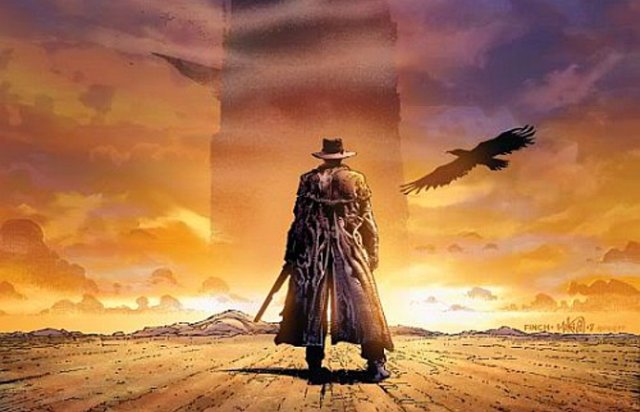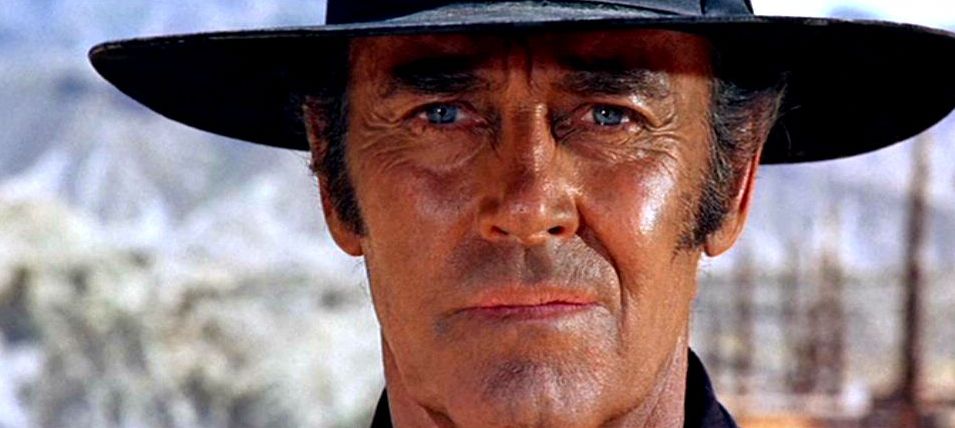 At first glance, they don’t have much in common. One deals with the future, the other with the past. One with alien civilizations and another with eminently familiar human ones. One with advanced science, and the other with nothing more complex than saddle bags and .45 Colts.
At first glance, they don’t have much in common. One deals with the future, the other with the past. One with alien civilizations and another with eminently familiar human ones. One with advanced science, and the other with nothing more complex than saddle bags and .45 Colts.
And yet, there is a lot of similarity, and science fiction writers can learn much from Westerns. I was thinking recently about my favorite Western stories, and realized that one of them, Robert Sheckley’s The Never-Ending Western Movie, appeared in my favorite science fiction short story collection, The Robot Who Looked Like Me. In the future, one of the most popular sources of entertainment is a Western which isn’t scripted, but has actors living, loving, and dying in a recreation of the old West. They can do anything they want without legal repercussions. The most popular actor from the series, who had moved on to bigger and better things, accepts an offer to return there for one last day as a guest star.
The story has everything one could ever want in a Western. Intrigue. Build-up. Ruthless villains. Stoic heroes. A lovely woman. A showdown between gunslingers. And even a neat twist ending.
And yet, it’s also a science fiction story that feels perfectly at home in the genre. And it’s far from the only one.
Rod Serling’s excellent The Twilight Zone had a number of Westerns with eerie fantasy or science fiction elements. They worked as both.
One of the greatest anime ever, Cowboy Bebop, is a space Western about bounty hunters in space in 2071. Many of the duels and action sequences are straight out of an awesome Western, only in space and part of some outstanding science fiction storylines. The dichotomy never feels odd.
Others will likely point out Westworld here. While the film was a fun 70’s adventure, I don’t care much for the TV series, but it too qualifies.
So what are the similarities? Both feature vast, unknown territory to be explored, whether the American West or space. The bold, slightly crazy heroes who do so, whether astronauts or gunslingers, have similar personalities. Both feature menaces from both the dangerous environment as well as alien cultures (Indians) or races. Both genres also have talentless hacks writing erotic romance in their setting. Oh, wait…that last one is true of every genre!

A villain to rival Baron Vladimir Harkonnen!
And that’s what science fiction authors can take from Westerns, as Sheckley clearly did. The best ones convey the grandeur and adventure of the open, empty plains on an almost visceral level. How many science fiction works are able to this for space? And in writing an astronaut exploring its depths, a study of various Western characters would help, whether Gary Cooper’s Will Kane in High Noon or Eastwood’s roles in the Man With No Name trilogy. Think or the relative complexity of Indians in quality Westerns, with some tribes being friendly and others hostile. While ostensibly about more advanced civilizations, aliens are often portrayed as far simpler and monolithic in science fiction! While science fiction doesn’t need antagonists as much as Westerns do, I would love to read an analogue to Frank in Once Upon a Time in the West.
Ultimately, to write better about the possible future, one should read more about a fictional past!
I was singing the praises of Robert E. Howard’s The Valley of the Lost just a couple days ago.
http://www.castaliahouse.com/throwback-sf-thursday-the-horror-stories-of-robert-e-howard-part-2/
At a time when the mainstream stuff so often screws it up, Westerns have long been fertile ground for ruminations on heroism and morality.
For further anime examples check out Outlaw Star and Trigun. They’re on par with Cowboy Bebop, in my opinion.
Peter Grant has several science fiction books that read as westerns. I highly recommend checking him out for them.
His westerns are also excellent reads.
A few western writers wrote some historicals with sword slinging. Gordon D. Shirreffs wrote the sublime CALGAICH THE SWORDSMEN. T. V. Olsen wrote BROTHERS OF THE SWORD. Philip Ketchum wrote WOMAN IN ARMOR. W. T. Babcock (as “Hunter D’Allard”) produced THE LONG SWORD etc. If I find a western writer wrote a swashbuckler or historical, I generally track it down.
-
Louis L’Amour had at least one too, ‘The Walking Drum’. I’ve only read his proto-urban fantasy (!) ‘The Haunted Mesa’, but that didn’t dampen my interest.
There’s a recently published Catalan scifi novel that’s a western dystopia. It’s call3d El perimetre The inspiration comes from the Clinton Eastwood spaghetti western specifically the Good, bad ugly
Here’s a link to the book
http://rucselectrics.blogspot.sg/2017/10/perimetre-jair-dominguez.html
xavier
The original Battlestar Galactica series had Western themes. In one episode, Apollo lands his viper on a Western-type planet and has a showdown with a rogue Cylon named Red Eye. The town villain uses the Cylon as his enforcer, until Apollo draws his pistol just a little bit faster than the dented robot.
I don’t know who said it, but someone referred to the show as Wagon Train in space.
Religion, particularly Christianity, comes up in Westerns, and unlike so many SF stories which are populated by atheist materialists, the characters of this show are quite religious and believe in God.
You could actually watch the show with your kids and the grandparents.
John Varley’s Steel Beach and The Golden Globe feature “disneylands” on Luna. In one, the residents chose to live (or vacation) in an enforced Post Civil War American West. They are forbidden from importing much, and the protagonist spends considerable time felling trees and building a cabin. Not westerns, but a good “compare and contrast” between the Loonies escaping a conquered Earth and a bygone age. https://en.wikipedia.org/wiki/Steel_Beach